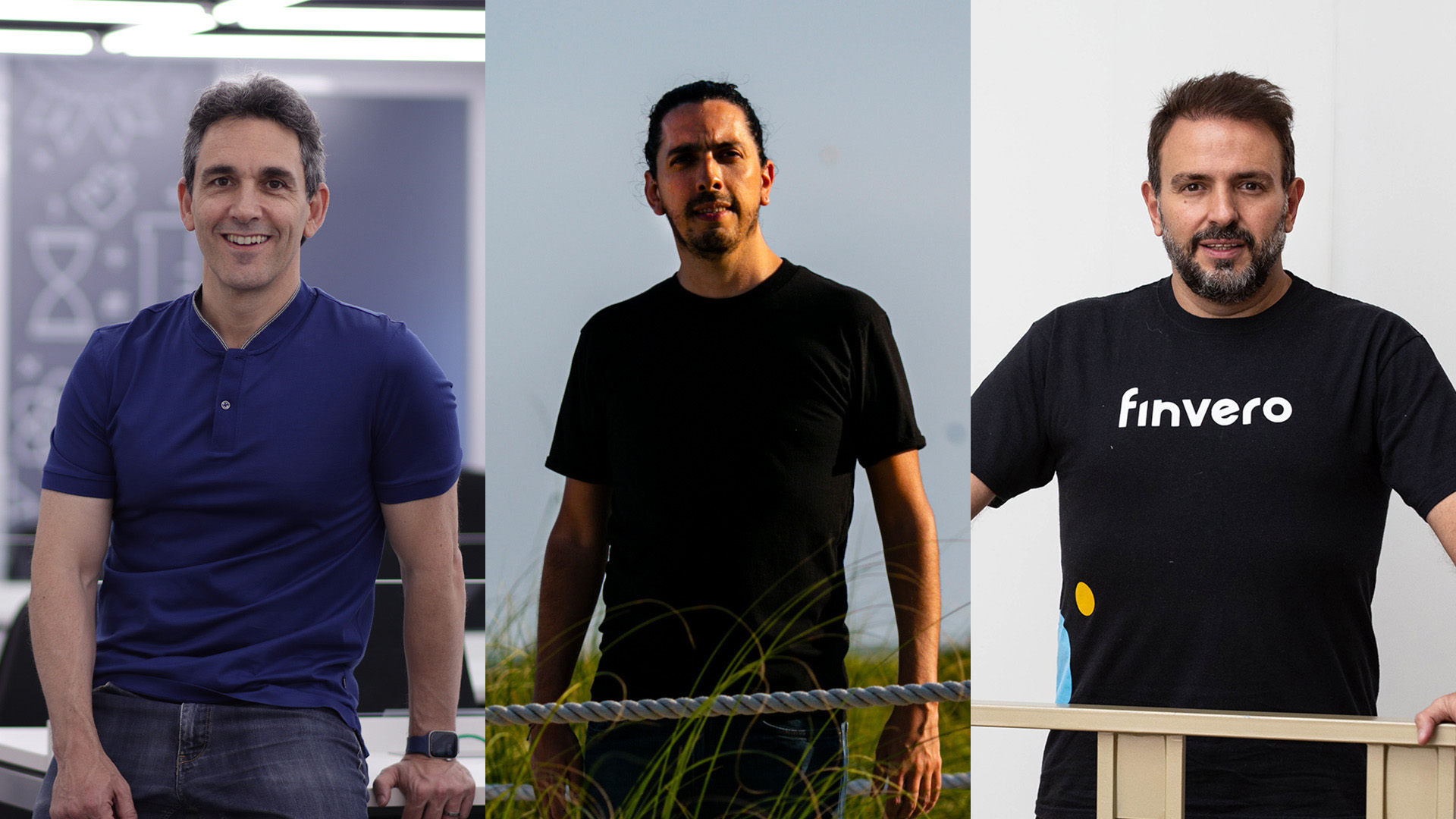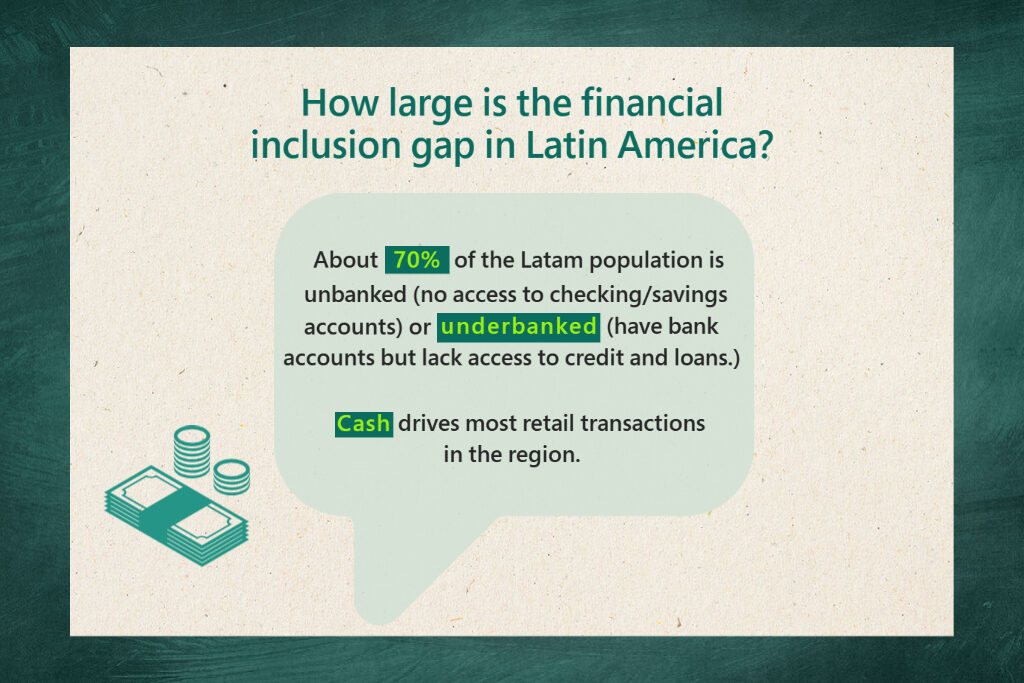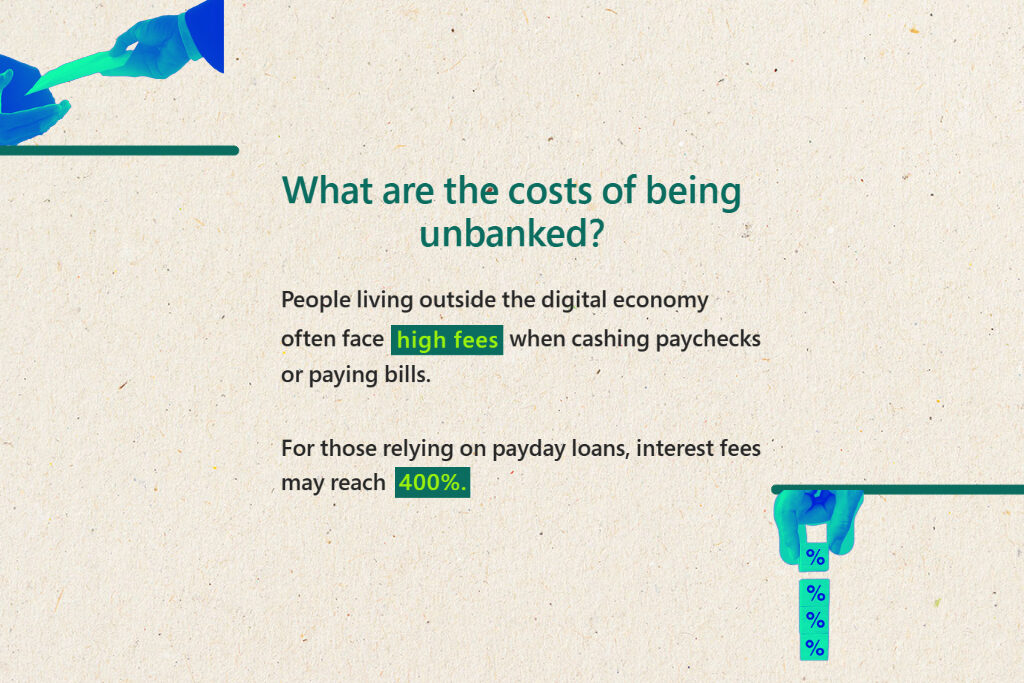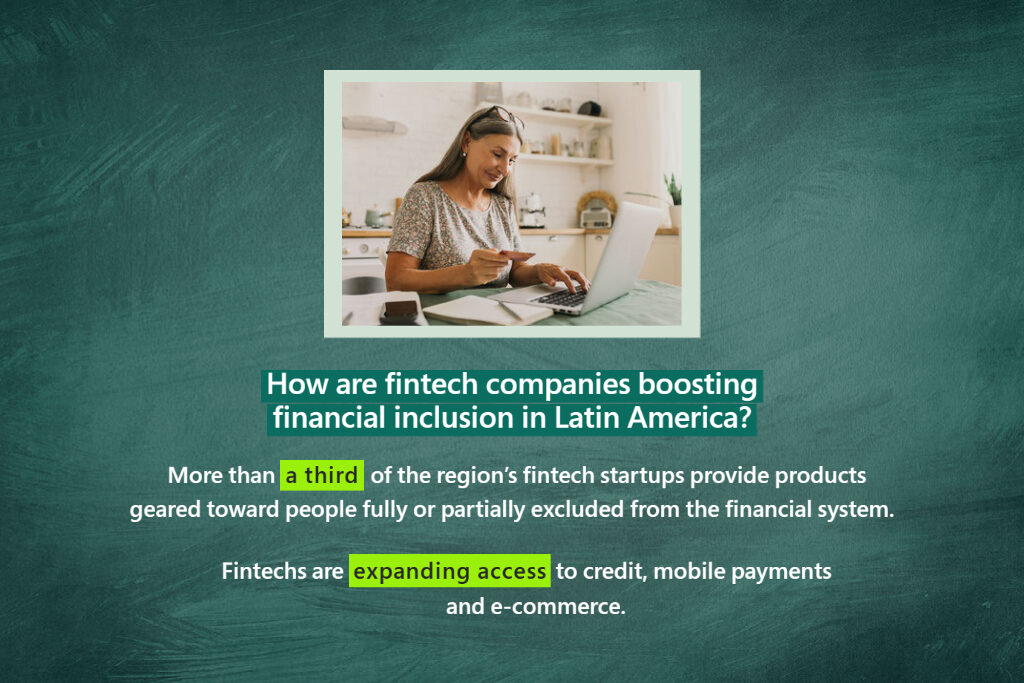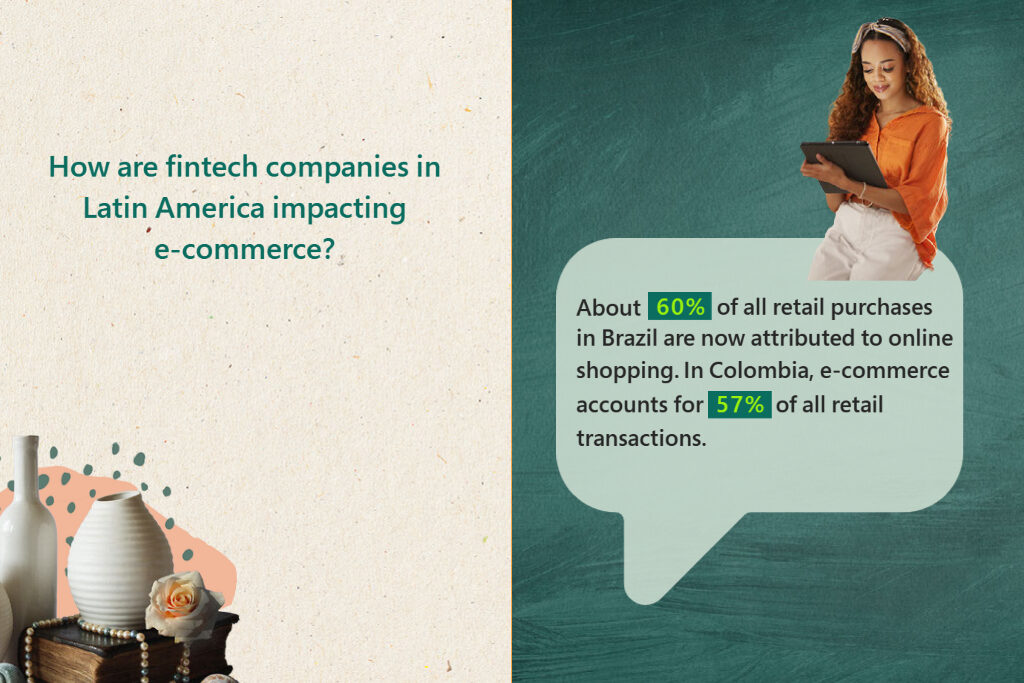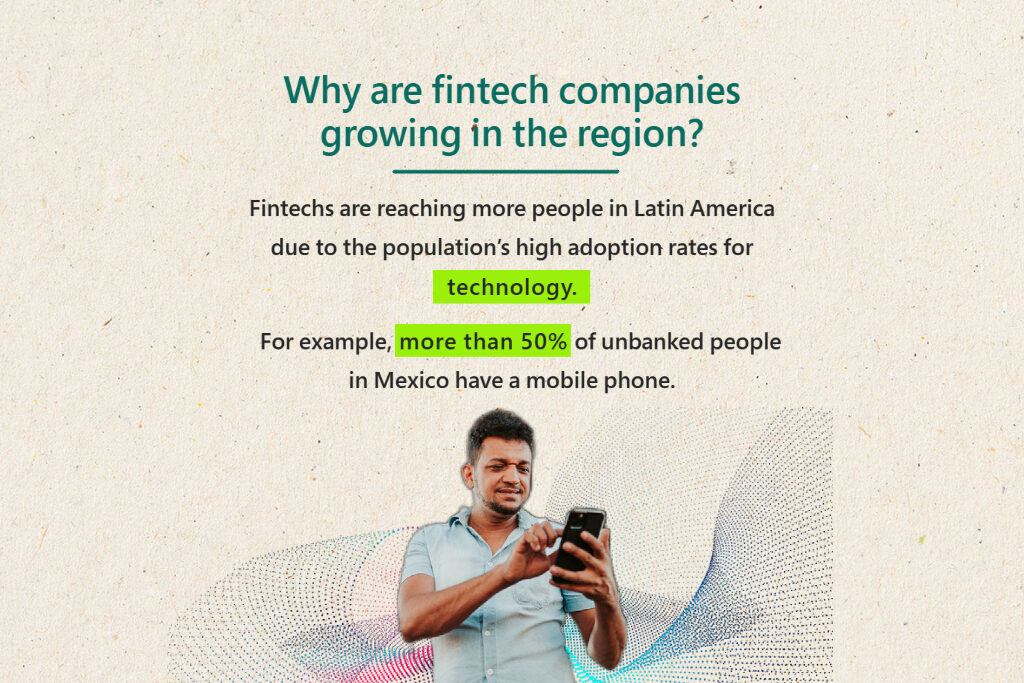When Mario Hernández first arrived in Mexico in 2010, he met his wife’s family, exchanged some happy hugs and immediately entered the world of the unbanked.
His Mexican in-laws, Hernández learned, were struggling to obtain a formal loan from any bank, placing them firmly in that nation’s all-cash majority.
Financially, the family is faring better. Mexico, not so much: the World Bank estimates that 63 percent of adults there, nearly 100 million people, lack a bank account and rely solely on the bills tucked in their wallet or stashed in their home to pay for food, shelter, medicine and every other commodity. Across Latin America, seven in 10 people are unbanked or underbanked, according to Latin America Reports, and this has fueled one of the world’s highest rates of income inequality.
“When I saw that in my family, it was, ‘no, I cannot see this,’” says Hernández, who came to Mexico from Spain, where he led a digital banking and payment-processing company. In his new land, Hernández set to work to shrink those disparities, ultimately launching Finvero, a platform that offers credit to consumers through a payment option on e-commerce websites.
“We decided to become a marketplace, so that we could get everyone together and say, ‘Okay guys, we have to solve the problem. It’s going to be a good business for everyone – for the lender, for the merchant, for the shopper,’” Hernández says. “We have to tackle the problem together.”
Today, Finvero, headquartered in Mexico City, and fellow digital natives N5, founded in 2017 in Argentina, and ClearSale, founded in 2001 in Brazil, sit at the forefront of Latin America’s fintech boom, which is transforming online markets across the region, with the goal of guiding millions of once-unbanked consumers into the digital economy.
Finvero describes itself as the first consumer-lending marketplace in Mexico, connecting merchants, lenders and consumers to address that nation’s underserved population. The company says it provides alternative scoring and disbursement of a loan in less than five minutes.
N5’s platform helps banks, insurance providers and other financial services firms transition their legacy systems to the digital world without changing their core technologies. ClearSale offers fraud protection and risk management for multiple industries, including e-commerce, financial services, telecom and others.
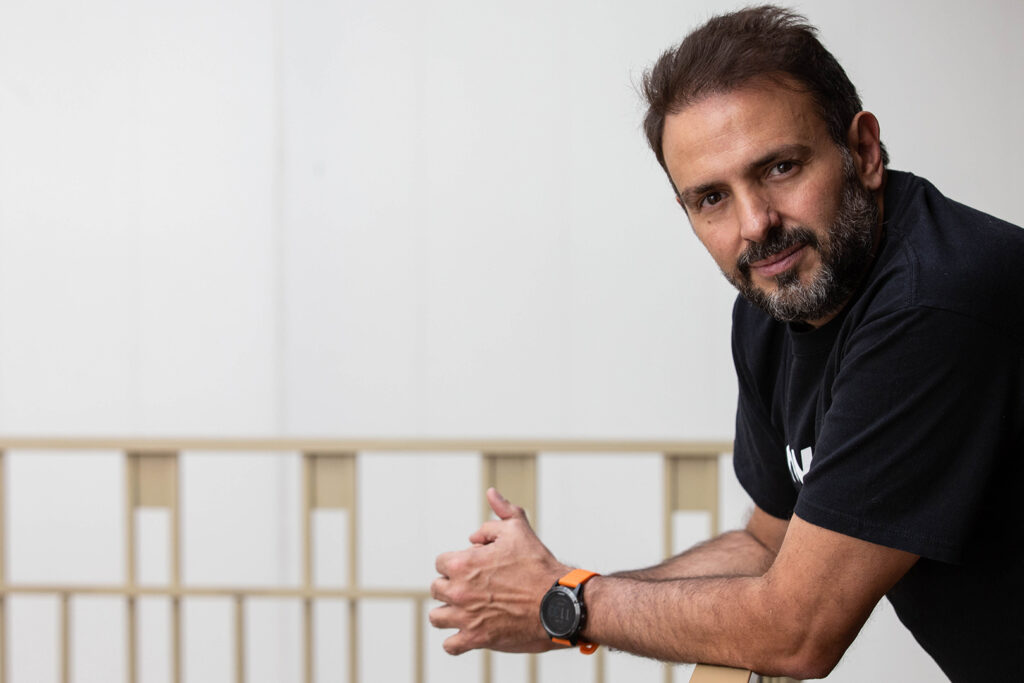
All three companies lean heavily on artificial intelligence (AI) to make real-time decisions that aid their clients. And each firm has leveraged Microsoft relationships and technologies to help build their infrastructures, improve their products and gain new customers.
The services provided by ClearSale, N5 and Finvero can collectively address long-standing gaps in the region’s fiscal landscape, says fintech expert Benjamin T. Beasley.
Those vulnerabilities include cash-only, shadow economies that exist across Latin America, such as informal labor markets, street vending and unregistered businesses that, over time, depress wages, raise poverty and weaken governments, according to a blog post published by the World Bank.
“Certainly, fraud protection, avoiding the – often – nightmare of legacy systems, and improving payment- and micro-installment options would all be very helpful in improving the LatAm financial sector,” says Beasley, a tech and finance lawyer based in Utah who represents fintech companies in Latin America and elsewhere. He lived for a time in South America.
“Part of why I find fintech so compelling is that it has the potential to modernize key aspects of economies and financial systems which could have an astonishingly large impact,” Beasley adds.
The number of fintech companies in Latin America has doubled in three years, according to Latin America Reports. What’s more, the collective value of that region’s fintech market has reached $2.1 billion, an increase of more than 4,000%, since 2016, says The Fintech Times.
Two recent events helped spur this boom. Early in the COVID-19 pandemic, some governments in Latin America, including Colombia and Honduras, introduced cash-transfer programs that distributed funds to people through digital wallets or mobile phones. Such initiatives began chipping away at the historical mistrust many people in Latin America hold for banks and governments. During 2020, about 13 million people in the region made their first online transactions, according to Latin America Reports.
Almost at the same time, smartphone connections in Latin America hit 500 million in 2021, an adoption rate of 74%, reports the GSMA, a trade body that represents the mobile network industry. By 2025, the region is expected to add nearly 100 million more connections, enabling an even larger swath of people to do their banking – or just buy dinner – without leaving home.
At ClearSale, ensuring those online meal orders are fraud-free requires real-time analysis, says Rafael Lourenco, an executive vice president and partner at the company. ClearSale blends advanced AI and human intelligence to ensure e-commerce purchases aren’t being made by scammers or hackers. Speed is key. The company has offices in Sao Paulo, Brazil, Miami, Florida and Mexico City.
One of ClearSale’s customers is an online food ordering and delivery service in Brazil. When consumers go online to request a tasty bite in Brazil, those transactions are often scrutinized and decided in less than one second by ClearSale’s AI platform, Lourenco says.
“No one is going to wait 24 hours to get their burger,” he points out.
The human element in ClearSale’s platform involves data scientists who feed historical data into the company’s supervised AI models, training the system to investigate purchasing patterns to differentiate between fraudulent and legitimate orders.
For example, online transactions made at 2 a.m. are considered riskier than online buys made at 7 p.m. and, generally, smartphone purchases carry more fraud risk than do mattress purchases, Lourenco says.
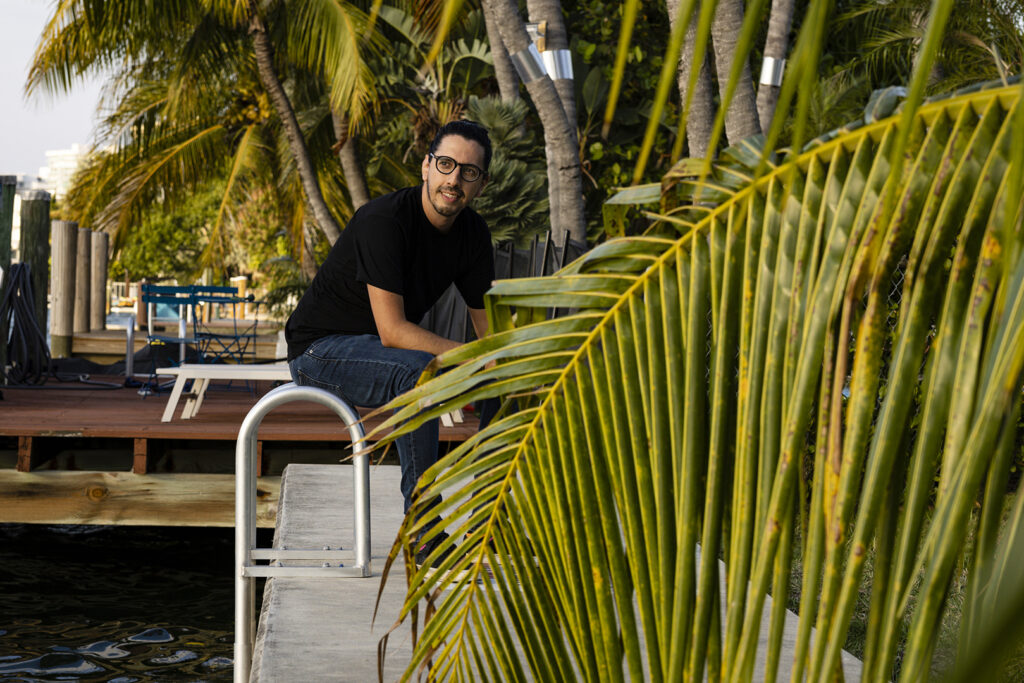
“The list goes on and on for the thousands and thousands of data points we collect,” Lourenco explains. “Now, which data points we include for the system to rate is considered human intelligence.”
ClearSale relies on Microsoft Azure to store all that data. Azure also enables the fraud-detection system to keep pace with high-volume buying periods like Black Friday, Lourenco says. And ClearSale guarantees the accuracy of its system. Were it to approve a transaction that’s ultimately shown to be illegitimate, the company would pay the merchant the full amount of that charge back.
The top 10 Brazilian retailers all use ClearSale’s solution, the company says. While ClearSale was not born in the cloud, it became fully digital through its partnership with Microsoft.
To bolster financial inclusion, ClearSale has trained its fraud-prevention platform not to overlook consumers from lower-income households in countries where it does business, including Mexico and the U.S. During the pandemic, more people joined the digital economy for the first time, some working their way out of poverty.
“Because we are making decisions based on identity theft, (we must ensure our platform is) based on the probability of somebody owning that data, not based on social markers,” Lourenco says.
“I could say, ‘Well, this person lives in a favela (a lower-income neighborhood), therefore, I won’t approve this order.’ And that’s not what we do,” Lourenco says. “We focus on the issue we are trying to solve: Is this person who they say they are?”
At the same time, Lourenco says, ClearSale is directly expanding financial inclusion through its ClearTech program, which trains employees in entry-level jobs, including contact centers, to become technologists. The program is operated in conjunction with Microsoft.
At N5, CEO Julián Colombo is attacking that same big problem with similar urgency. The company has offices in Buenos Aires, Argentina; Madrid, Spain; Sao Paulo and Miami.
For 30-plus years, Colombo held jobs in the financial industry, including at one of the largest banks in Europe. He learned firsthand the inherent difficulty in digitally transforming any bank to boost customer service.
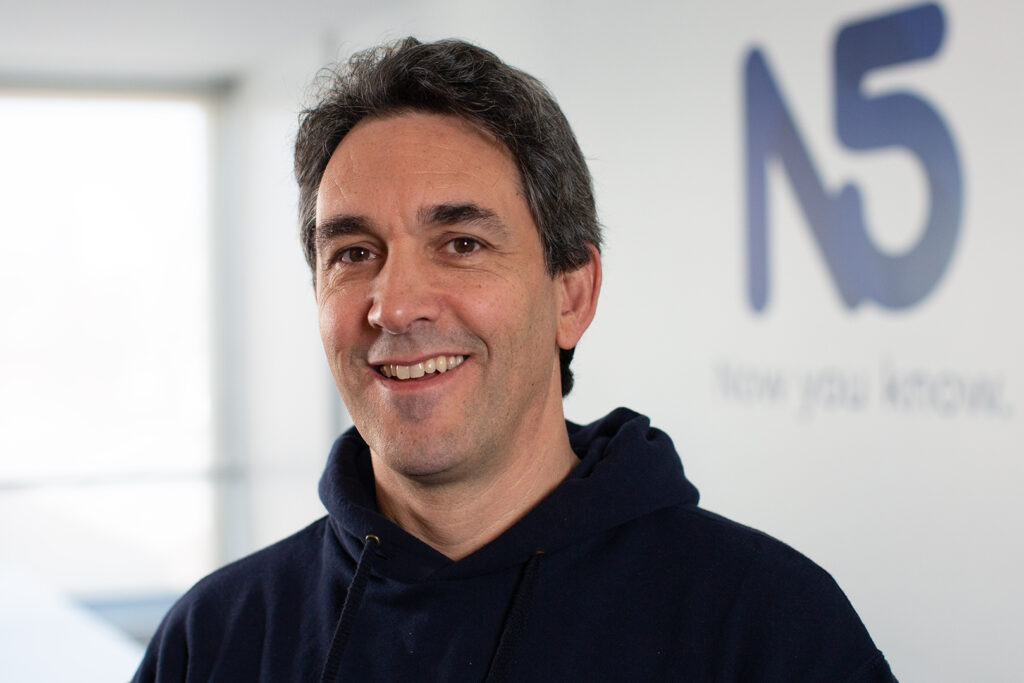
“Banks want to create better experiences; they just can’t,” Colombo says. “And they can’t because (adding) technology for banks is like building a plane while you fly. You can’t tell a customer, ‘I’m not giving you your balance for three months because I need to change my software.’ I felt that pain from the inside.”
In 2017, he left banking to create software designed for the broader financial industry and its unique constraints, including heavy data regulation, extreme privacy and outdated legacy systems. What came next was the N5 platform, which connects to all existing software in a simple way, allowing for “huge and fast innovation without changing the underlying legacy systems,” Colombo says.
On the street, the new enterprise advanced the ongoing push for financial inclusion: In places where banks simplify their transactions and expand access to credit, wealth distribution rises and “people live better lives,” Colombo says.
In Argentina, as in many Latin American countries, historic mistrust of banks and the larger financial system has driven the rise of “un-regular work and living spaces,” Colombo says. “We need to make sure those working people are able to save their hard-earned money, are able to have access to credit and many other things that can allow them to move along and develop.”
Approximately 7 million N5 customers, mainly people living in Brazil, Argentina and Mexico, have joined the digital economy through the company’s solutions. N5 executives expect that number to double in 2023, particular with N5’s new operations in Peru, Paraguay and the U.S.
N5, like Finvero, built its product with AI and machine learning capabilities, using a bevy of Microsoft products, including Azure Cognitive Services, machine learning operations, Azure Databricks and Azure Form Recognizer, Colombo says, explaining that AI and machine learning are “critically involved in all decision-making within the tool.”
“Humans are great at creating and nurturing trust relationships, providing empathy and advising in a comprehensive way. AI should help them dedicate time to that by making decisions in an efficient way,” Colombo says.
N5, like Finvero, also participated in the Microsoft for Startups Founders Hub program, which provides up to $150,000 in free Azure credits and connects new companies with business experts, mentors and technical advisors. In 2021, Microsoft named N5 “Startup of the Year” in the business excellence category for the Latin American and Caribbean region.
“Creating a tech company is never easy, especially when you were completely bootstrapped, as we were,” Colombo says. “I often say that Microsoft was kind of our sponsor at first, giving us what we needed in order to really focus on the delivery to our customers and the improvement of our product.
“Later on, the relationship matured into a partnership when we can approach customers and offer a holistic solution for their needs.”
Through its partnership with Microsoft, N5 acquired more than 20 customers in the banking and insurance industries.
Finvero, which launched in 2021, relies on Azure to provide an integrated platform that helps the company deliver new features for its consumer-credit business, Hernández says.
Finvero also built its infrastructure in Azure. That enabled a blitzscaling approach, a strategy that prioritizes speed to achieve rapid growth. During Finvero’s first full year of operations, more than 150,000 e-commerce users were scored by the company’s credit marketplace. During 2023, Hernández expects more than 3 million people to apply for a loan with Finvero.
Today, Finvero’s customer base spans 520 retail merchants, the company says, and a network of 30,000 stores. Each month, Finvero receives tens of thousands of credit applications from shoppers. It uses AI to score the buying patterns of those shoppers and to decide on those credit requests in real time.
Finvero’s digital marketplace is focused on but not limited to underserved shoppers in Latin America. The work, Hernández says, is helping to elevate financial inclusion, as he vowed to do 13 years ago when he saw his in-laws try over and over to secure a loan from any bank.
“We do the matchmaking between the best bank or the best lender option for that shopper, with the best terms and conditions for that affordable loan,” he says. “We are a financial friend of our shoppers.”
Top image: From left to right, N5’s Julián Colombo, ClearSale’s Rafael Lourenco and Finvero’s Mario Hernández. Image by, from left to right, N5, Eva Marie Uzcátegui and Octavio Hoyos.

